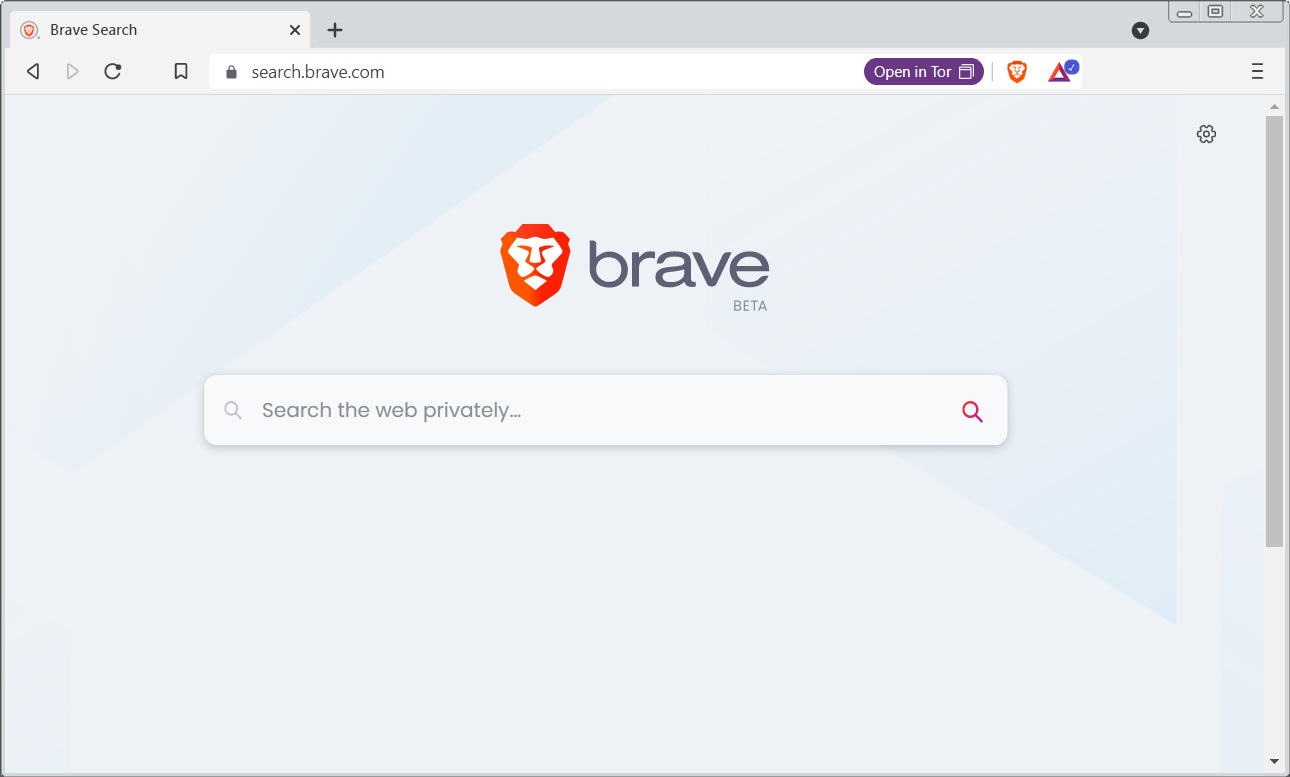
Brave Browser has replaced Google with its own no-tracking privacy-centric Brave Search as the default search engine for new users in five regions.
Brave is an open-source Chromium-based browser that focuses on user privacy by automatically blocking ads and tracking scripts and removing the privacy-invasive functions built into Chromium.
Historically, Brave used Google as its default search engine when searching from the address bar. However, Google is known for tracking users' activities, behavior, and interests, not making it a good fit for a privacy-centric browser.
Today, Brave announced that their privacy-focused Brave Search has now become the default search engine for new users in the United States, Canada, and the United Kingdom. Brave Search also replaces Qwant in France and DuckDuckGo in Germany.
"Today’s Brave desktop browser update (version 1.31), as well as the Brave Android app (version 1.31)* and the Brave iOS app (version 1.32) all automatically offer Brave Search as the default for new users in these five countries, with fully localized versions in non-English geographies," announced Brave.
"Brave users can easily choose a different search option if they prefer by managing their search engine settings."

Brave Search was first launched on June 22nd, 2021, and uses its own independent search index and an impressive array of security features:
- Privacy: no tracking or profiling of users.
- User-first: the user comes first, not the advertising and data industries.
- Independence: Brave has its own search index for answering common queries privately without reliance on other providers.
- Choice: soon, options for ad-free paid search and ad-supported search.
- Transparency: no secret methods or algorithms to bias results, and soon, community-curated open ranking models to ensure diversity and prevent algorithmic biases and outright censorship.
- Seamlessness: best-in-class integration between the browser and search without compromising privacy, from personalization to instant results as the user types.
- Openness: Brave Search will soon be available to power other search engines.
These privacy features appear to resonate with users as they have grown to 80 million queries per month since June's launch.
"Brave Search has grown significantly since its release last June, with nearly 80 million queries per month. Our users are pleased with the comprehensive privacy solution that Brave Search provides against Big Tech by being integrated into our browser," said Brendan Eich, CEO, and co-founder of Brave.
While Brave Search does not currently display ads, it will soon be ad-supported. Brave states that they will offer an ad-free premium version in the future, but there are no details regarding the service's cost.
For those who want to help Brave Search become more useful and display relevant search results, Brave also launched the Web Discovery Project today.
If you opt into the Web Discovery Project, Brave Browser will upload anonymous data about searches and web page visits made in the browser. This data will be used to refine the Brave Search index and display more relevant search results.
This feature is disabled by default, but users can join the Project by going to Settings > Search and enabling the 'Web Discovery Project' setting.


Comments
JBTito - 2 years ago
Looking for my company website got me to some illegal movie streams links
Long story short: Advertising startup with privacy issues (inserting affiliate referral codes) is trying to take some of the cake from alpha technology/ad company.
Brave = Chrome with disabled 3'rd party cookies and lite version of ublock origin + Brave injected ads .. No thanks !
EmanuelJacobsson - 2 years ago
You fail to realize none of its controversies were by default, and they specifically laid it out in their privacy policy, which we all know no one reads, and that was indeed at the very beginning, they have matured a lot and wont risk doing it again.
Another thing you fail to realize is that its search engine is powered by the community, so its no surprise your company doesnt pop up if no one has searched for it.
Firefox is also an advertising company, they even get most of their money from Google.
NoneRain - 2 years ago
<p>Yeah, his company website that has Google Analytics on it, is not showing up at from page for non-Google search engines...</p>
JBTito - 2 years ago
You'r funny guy or better call it fanboy !
Brave browser founder and CEO (Brendan Eich) apologized for automatically adding affiliate links to cryptocurrency URLs..
It wasn't mistake but intent that was executed !
Your opinion is well irrelevant as facts are clear. I can put some more facts but (as before) you will not read it/or understand it, and i can't understand it for you.
As i said earlier in post.
Brave = Chrome with disabled 3'rd party cookies and lite version of ublock origin + Brave injected ads
NoneRain - 2 years ago
I understand why they made it, but, I don't think it'll grow in populatiry when their user base already has a more mature solution, DuckDuckGo.
And since their results are community based....
sumnone - 2 years ago
Testing a search engine is easy these days. Just put in the word "Trump" and if it comes back with tons of CNN polls and garbage news negativity (as half the first page of search.brave.com did), it's not a worthy search engine...unless you like being gaslit of course.